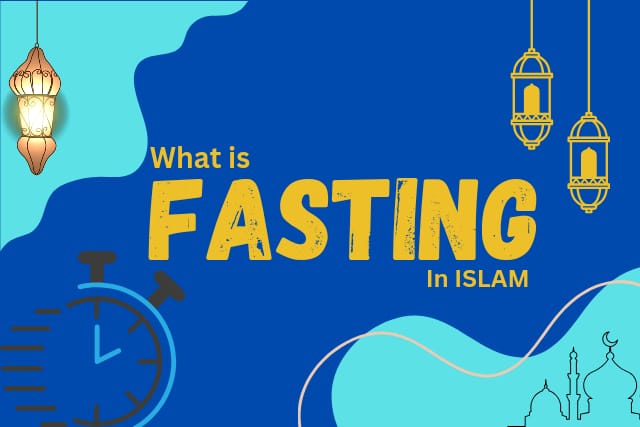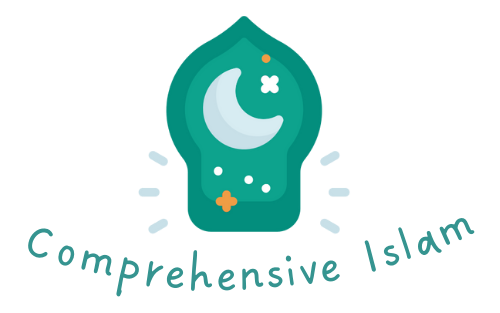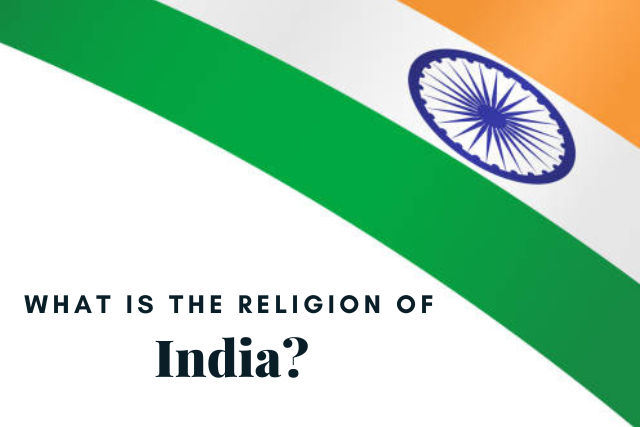What is Fasting in Islam | Its Purpose, Rulings & Rulings

Fasting in Islam, known as Sawm, is a crucial pillar of the faith practiced during the holy month of Ramadan. It involves abstaining from food, drink, and certain activities from dawn until dusk. Aside from physical deprivation, it nurtures self-discipline, self-control, sacrifice, and empathy.
Fasting rulings, per Islamic jurisprudence, encompass obligatory and optional fasts, the conditions under which one must fast, and instances where fasting is invalidated.
What Does Holy Quran Say About Ramadan?
The Quran, Islam’s holy book, refers to Ramadan as the month in which the Quran was revealed as guidance for humanity. It designates fasting during Ramadan as obligatory for every able Muslim. The Quran also highlights the spiritual significance of Ramadan, linking it to the growth of piety, self-reflection, and closeness to Allah.
“Oh, you who believe! Fasting is prescribed to you as prescribed to those before you so that you may learn holiness and righteousness.”
What did the Holy Prophet Say About Ramadan?
The Holy Prophet Muhammad (PBUH) underscored the sanctity of Ramadan through his words and actions. He stated that when Ramadan begins, the gates of Heaven are opened, and those of Hell are closed. He also stressed the redemptive power of Ramadan, saying that whoever fasts in Ramadan with faith, seeking reward, will have their past sins forgiven.
During Ramadan, Allah’s Messenger (saw) said, “The gates of heaven have been opened, and the gates of hell have been closed.”.
(Imam Bukhari)
Purpose of Fasting
Fasting serves multiple purposes. Primarily, it is an act of obedience and submission to Allah. It is a time of spiritual growth, self-discipline, and reflection. By abstaining from worldly comforts, even briefly, fasting cultivates empathy towards the less privileged and underlines the importance of gratitude.
Fasting Is Obligatory
For every adult Muslim of sound mind and health, fasting is obligatory during Ramadan. Exceptions include the ill, pregnant, nursing or menstruating women, and travellers. Those unable to fast must compensate by feeding people experiencing poverty or making up missed fasts.
Rules of Fasting
Fasting rules mandate abstinence from food, drink, and marital relations from dawn to sunset. Inadvertent eating or drinking doesn’t nullify the fast. But dishonesty, false speech, or ignorance of the fast’s arrival can invalidate it.
Who Must Fast?
Fasting is incumbent upon every sane adult Muslim who is not menstruating, pregnant, breastfeeding, ill, or travelling. Although not required, children are often encouraged to fast for a portion of the day to prepare for adult observance.
Fasting According to the Sunnah
The Prophet Muhammad (PBUH) established the Sunnah (practices) of fasting. These include the pre-dawn meal (Suhoor), breaking fast with dates or water, and increasing prayer and Quran recitation. Following these Sunnah practices enhances the spiritual benefits of fasting.
Things That Invalidate the Fast
Actions that invalidate fasting include
- Intentional eating or drinking,
- Intentionally vomiting,
- Menstruation,
- Marital relations during fasting hours.
When fasting is broken intentionally without a valid reason, it necessitates make-up fasting and expiation.
Things That Do Not Invalidate Fasting
Unintentional acts like swallowing saliva, bathing, and unintentional vomiting do not break the fast.
- Using perfumes, wearing contact lenses, and having a blood test.
- Intentionally eating, drinking or smoking while fasting, i.e. forgetting to stop as soon as one remembers.
- Fasting allows kissing between husband and wife, but one should avoid it to avoid committing any further sins.
- Sleeping during the daytime and having a wet dream does not break one’s fast.
Requirements for Fasting to Be Valid
For fasting to be valid, the intention (Ni.yyah) to fast must be made every day before dawn. The person must abstain from all things that break the fast, and the fast must start from dawn and end at sunset.
The Philosophy of Fasting
Fasting’s philosophy revolves around obedience, devotion, self-discipline, and solidarity with people experiencing poverty. It’s a
It means cleaning the soul, refocusing on faith, and developing resilience against temptation.
Spiritual Dimension
The spiritual dimension of fasting fosters a sense of unity with fellow Muslims, enhances devotion to Allah and encourages self-reflection and moral uprightness. It’s a time for increased prayer, recitation of the Quran, and performing good deeds.
- Cleansing the Soul
Fasting serves as a cleaner, cleansing the soul of impurities and promoting spiritual growth. By restraining desires and suppressing negative emotions, fasting allows Muslims to purify their hearts, promoting peace and tranquillity.
- Stimulates More Desire for Allah
Fasting intensifies the longing for Allah, as it is an act of wholehearted obedience. Muslims strengthen their connection with Allah by forsaking worldly pleasures and focusing on prayer and Quran.
- Listens to Allah’s Command
Fasting exemplifies submission to Allah’s command. It’s a practical demonstration of Muslims’ willingness to surrender their desires for Allah’s pleasure, fostering a closer relationship with the divine.
A Newly Born Feeling
After a month of fasting, Muslims often experience a spiritual rebirth. The discipline, self-control, and increased devotion fostered during fasting often lead to a renewed sense of purpose and closeness to Allah.
The Social Dimension
Fasting also has a significant social dimension. It fosters community as Muslims worldwide engage in a shared spiritual journey. The collective experience of fasting, prayer, and communal meals cultivates solidarity and social cohesion.
Physical Benefits of Fasting
Fasting offers several health benefits. It aids weight loss, improves heart health, regulates blood sugar levels, and can potentially protect against certain diseases. It also promotes detoxification and boosts the immune system.
- Helps in Weight Loss
By limiting food intake, fasting encourages weight loss. It shifts the body’s metabolism from carbohydrate to fat burning, aiding in weight management. However, balanced nutrition is vital to avoid any health risks.
- Enhances Heart Health
Studies suggest fasting can reduce risk factors associated with heart disease, including blood pressure, cholesterol, and sugar levels. Maintaining a balanced diet while fasting is important to attain these benefits.
- Defeats Cancer
There’s emerging evidence suggesting that intermittent fasting may help prevent cancer. Fasting may boost the body’s ability to fight off disease, though more research is needed in this area.
- Enhancing Blood Sugar Levels Lowers Bad Cholesterol and Prevents Chronic Diseases
Fasting can improve insulin sensitivity, helping regulate blood sugar levels. Diabetes and heart disease risk can also be reduced, as well as harmful cholesterol levels.
- Improved Digestive System
Fasting gives the digestive system a rest, allowing the body to focus on detoxification and repair. It can aid digestion and improve overall gut health.
Mental Benefits of Fasting
Fasting isn’t just physically transformative; it also benefits mental health. It’s linked to improved memory and focus, better mood, and potential protection against neurodegenerative diseases.
- Helps in Protecting from Alzheimer’s Disease
Preliminary research suggests fasting may reduce the risk of neurodegenerative diseases like Alzheimer’s. Fasting stimulates autophagy, which helps cells repair themselves, potentially warding off brain diseases.
- It Helps in the Improvement of Memory and Intellect
By improving brain health, fasting can boost cognitive functions like memory and intellect. The discipline and focus required during fasting also indirectly aid mental agility and performance.
- Boosts the Mood
Fasting can improve mental well-being. It can boost mood by releasing “feel-good” hormones like endorphins. The spiritual fulfilment of fasting also contributes to positive mental health.
Ramadan’s Lessons for Us
Ramadan teaches lessons of patience, empathy, and gratitude. It underscores the importance of spiritual growth, charity, community, and self-discipline. It’s a time for Muslims to cleanse their hearts and reaffirm their commitment to Islamic teachings.
10 FAQS WITH Answers
Is fasting compulsory in Islam?
Yes, fasting during Ramadan is compulsory for every adult, healthy, sane Muslim. There are exceptions, such as illness, pregnancy, menstruation, and travel.
What are the benefits of fasting?
Fasting has many benefits, including spiritual growth, self-discipline, improved physical health, and mental well-being.
Can you drink water while fasting?
No, drinking water during fasting hours in Ramadan is not allowed.
What if you accidentally eat or drink while fasting?
If you accidentally eat or drink, your fast is still valid. Intention matters in Islam, so unintentional actions do not break the fast.
If you break your fast during Ramadan, what happens?
If you break your fast without a valid reason, you must make up for the missed fast and may need to offer expiation, depending on the circumstance.
Are there any exceptions to fasting?
Exceptions include the ill, pregnant or nursing women, menstruating women, and travellers. Those who cannot fast must feed a poor person or compensate for the missed fasts.
What does fasting teach us?
Fasting teaches self-discipline, self-control, sacrifice, empathy, and reliance on God. It’s a time for self-reflection and spiritual growth.
Can children fast?
Children are not required to fast until they reach puberty. However, they’re often encouraged to fast for part of the day to prepare for adult observance.
How do Muslims break their fast?
Muslims break their fast with the Iftar meal, often starting with dates or water, following the Sunnah of Prophet Muhammad.
Why is Ramadan special?
The Quran was revealed during Ramadan. It’s a time of intensified worship, prayer, and good deeds. Fasting during this month is believed to forgive past sins.
Conclusion
In conclusion, fasting in Islam is not merely an act of self-denial but a holistic approach to physical, mental, and spiritual wellness. It embodies a journey of self-discovery, discipline, and divine connection. Embracing the principles of fasting as prescribed in the Holy Quran and the Prophet’s teachings can yield profound spiritual insights, enhance physical health, and promote a sense of community.
As the holy month of Ramadan approaches, let’s all remember to embrace these lessons, not just for a month, but as enduring life principles. This way, we continuously nourish our souls and build a healthier relationship with our Creator.






